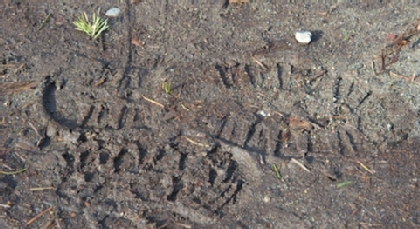Page 171 • (2,245 results in 0.02 seconds)
-
Delete Black@PLU Archives Digital Exhibits and Research Resources Site Menu Home About Staff Use & Reproduction Policies Collection Policy Teaching and Learning Services University Archives Records Retention Policies and Transfer Procedures ELCA Region 1 Archives ELCA Records Management Scandinavian Immigrant Experience Collection Oral History Collection Digital Exhibits and Research Resources A Queer History of PLU A Queer History Timeline Beth Kraig’s Story Brian Norman’s Story Colleen Hacker’s
-
Remove Back New Delete ELCA Region 1 Archives Archives Site Menu Home About Staff Use & Reproduction Policies Collection Policy Teaching and Learning Services University Archives Records Retention Policies and Transfer Procedures ELCA Region 1 Archives ELCA Records Management Scandinavian Immigrant Experience Collection Oral History Collection Digital Exhibits and Research Resources A Queer History of PLU A Queer History Timeline Beth Kraig’s Story Brian Norman’s Story Colleen Hacker’s Story Pastor
-
ePass Save Add Edit Remove Back New Delete Scandinavian Immigrant Experience Collection Archives Site Menu Home About Staff Use & Reproduction Policies Collection Policy Teaching and Learning Services University Archives Records Retention Policies and Transfer Procedures ELCA Region 1 Archives ELCA Records Management Scandinavian Immigrant Experience Collection Oral History Collection Digital Exhibits and Research Resources A Queer History of PLU A Queer History Timeline Beth Kraig’s Story Brian
-
Remove Back New Delete Oral History Collection Archives Scandinavian Immigrant Experience Collection Site Menu Home About Staff Use & Reproduction Policies Collection Policy Teaching and Learning Services University Archives Records Retention Policies and Transfer Procedures ELCA Region 1 Archives ELCA Records Management Scandinavian Immigrant Experience Collection Oral History Collection Digital Exhibits and Research Resources A Queer History of PLU A Queer History Timeline Beth Kraig’s Story Brian
-
student staff in Waste Diversion) collect co-mingled and glass recycling in campus buildings. These items are brought down to Facilities Management where Waste Diversion student staff make sure there are no contaminants (trash or other items not meant for the co-mingled recycling) and make sure that glass is sorted out. Then they place the co-mingled in a large recycling dumpster and the glass in a separate glass recycling dumpster. When these on campus dumpsters get full LeMay hauls them to the
-
administrators to enact these approved policies and procedures. To develop and oversee policies for regular programmatic curriculum review, revision and oversight of the Core Curriculum. To work in collaboration with appropriate administrators to conduct the review for and report the results of this review and recommendations to appropriate bodies (e.g., the faculty, the Educational Policies Committee, the provost, etc.). To facilitate general program management and delivery including: a. Review and approve
-
. The council recommends to the Educational Policies Committee (EPC) any broad curricular changes, stemming from on-going assessment and review, of the General Education Program. The council reviews and comments on proposals referred from the Educational Policies Committee as appropriate to the General Education Program.Program Oversight and ManagementFacilitate general program oversight and management. The council oversees and facilitates, in collaboration with the registrar, deans and department
-
Faculty Handbook. Provide new faculty members with the opportunity to observe excellent teaching across campus. Provide new faculty members with avenues for understanding the culture and expectations of the university, and the department/school/division. What is the time commitment?For the mentor (about 3 hours during the Spring semester academic year): Meet with the mentee (who has shared their syllabus with the mentor) to discuss course construction and management, and any issues of concern the
-
experience for them. The MFT program extends beyond what some might think. In addition to couples and marital issues, the student therapists help in addressing family, parenting, depression, anxiety, divorce, trauma, communication, anger management, sex and sexuality, grief and loss, and drug and alcohol issues. Being able to address such a large spectrum of needs over the last two-plus years has been a benefit to more than 500 people who have sought therapy at the program’s East Campus location at the
-

is and how to reduce it through eight steps: 1: Sustainability in Campus Culture 2: Campus Operations 3: Sustainability in Curriculum 4: Reducing Scope 3 Emissions -Transportation 5: Waste Stream Management 6: Reducing Scope 1 & 2 Emissions -Facility Improvements 7: Renewables 8: Funding Sustainability Projects There are big steps to be taken, like identifying and committing to facility upgrades, but there are also smaller steps that make a significant difference. “It’s just going to take
Do you have any feedback for us? If so, feel free to use our Feedback Form.


